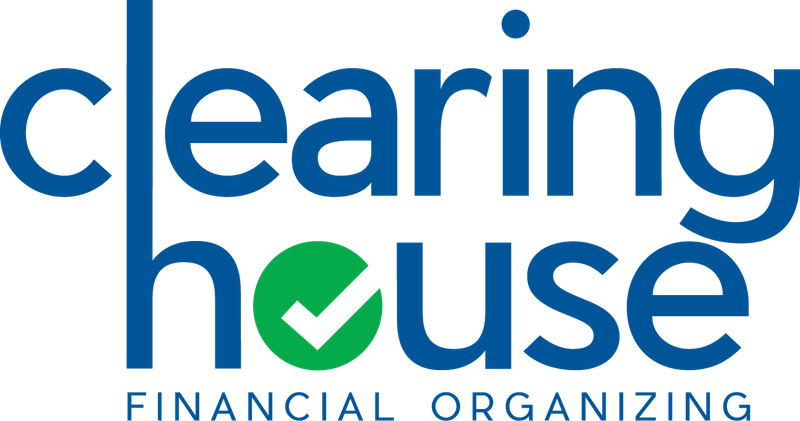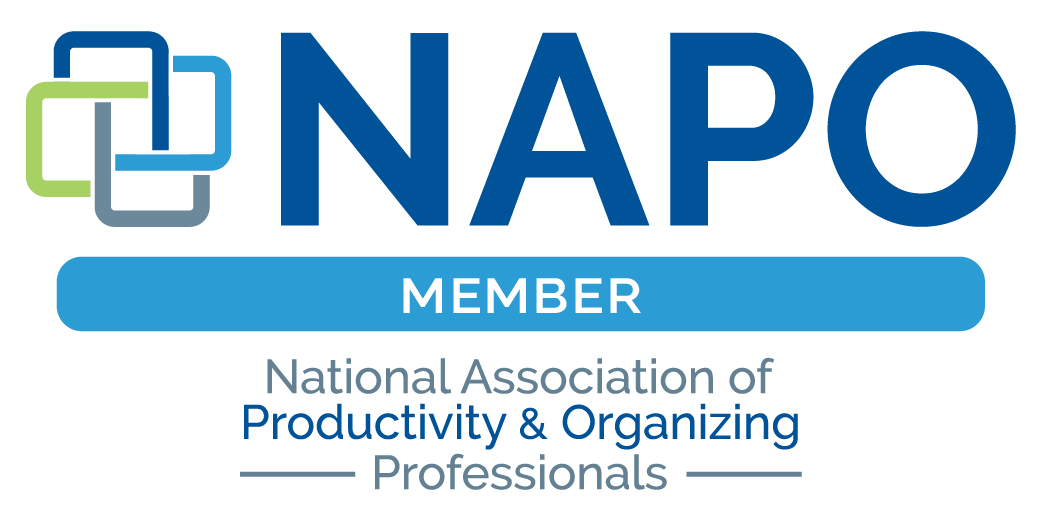I know wh at you’re thinking: the month of February is bad enough with it’s bleak weather. Winter doldrums shift into high gear. Many of us have been stuck inside due to successive winter storms and/or frigid temperatures this year, our patience running low with family members and colleagues. So who really wants to work on organizing paperwork for their annual tax filing?
at you’re thinking: the month of February is bad enough with it’s bleak weather. Winter doldrums shift into high gear. Many of us have been stuck inside due to successive winter storms and/or frigid temperatures this year, our patience running low with family members and colleagues. So who really wants to work on organizing paperwork for their annual tax filing?
I do! I do! Having the right paperwork at your fingertips for reporting on your annual tax return is one bright spot in an otherwise dismal task. In our series on organizing personal paperwork, the second suggested project for this year is to gather and categorize your tax documents. The tips shared below will help you prepare a system for this annual job that will be so easy to replicate each year that you’ll be saying “I do” next!
Early preparation of your tax documents benefits you in numerous ways:
- Receive any refunds due as early as possible (money in the bank!),
- Reduce accountant/professional service fees,
- Have more time to plan additional savings for tax adjustments (taxes owed, or additional deductible IRA contributions, both due by April 15),
- Complete student federal aid filing (FAFSA) on time and only once to confirm the expected family contribution (EFC), for those families with students attending college;
- Moves the task immediately off your to-do list, relieving the psychic burden of this responsibility and freeing up personal time for more enjoyable activities
 Some questions to consider prior to setting up a system for filing personal tax documents:
Some questions to consider prior to setting up a system for filing personal tax documents:
- What are your income sources (payroll, other earnings)?
- Will you itemize expenses? If so,
- What categories of personal expense will you be tracking?
- Do you have any business income/expenses?
Common categories for tax paperwork for individuals and/or households include:
- Income (W-2, 1099, other earnings statements or receipts, state refunds, etc.)
- Charitable Donations (cash and property)
- Medical Expenses (office visit bills, prescription receipts, EOBs for tracking at end of year, etc.)
- Other Deductions (mortgage interest paid, property & other taxes paid, childcare expenses, higher education expense, Schedule C expenses, etc)
Setting up file folders for these 4 categories (at a minimum) will ensure that you corral almost all of documents you will need by filing season, provided you use the system throughout the year as you receive papers and receipts to file. Keep folders in an easy-reach location so you make it easy as possible to file papers when you receive them. As discussed in the previous post in this series on setting up an easy file system, Freedom Filer is a recommended pre-labeled color-coded file system which includes designated categories for tax paperwork and can be customized to your situation (personal or small business).
For electronic forms issued by financial institutions (i.e., bank interest), set up a folder in your email account to receive the notices declaring the statement availability. When all notices you expect to get are received, carve out a specific time in your calendar to log in to all accounts to download statements necessary for tax filing. Print as needed and add to the categorized folders.
At the least, one general file folder or expandable file labeled “Tax 2015” (or similar) located within arms reach (either in a file drawer or desktop file sorter) is sufficient to house incoming papers throughout the year. However, categorizing tax papers in advance reduces time spent sorting and reviewing documents when it comes time to send information to your tax preparer or enter data into tax software yourself.
Once your taxes are completed, don’t forget to remove paperwork from these active tax folders each year at tax prep time (and archive with tax return) so they will be ready to house current year tax paperwork to come. If you file for an extension (to file by October), create a duplicate set of tax folders to avoid combining papers from more than one tax year together.
If you care to share ideas or tips on how you simplify the process for organizing tax paperwork, please leave a comment below, thanks!
To a successful tax season!





